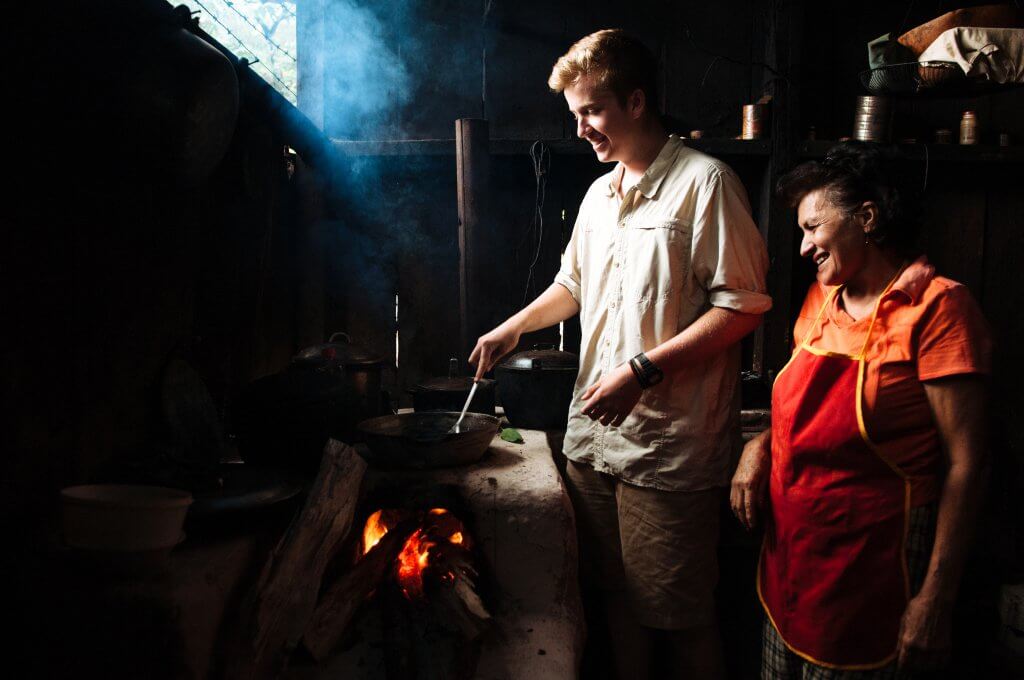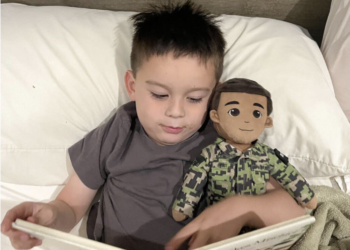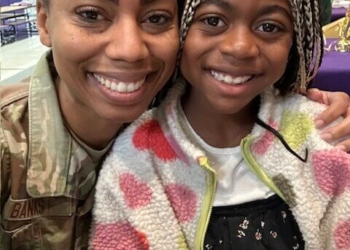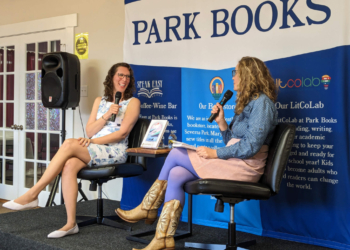Teens would normally be getting ready to travel the world this summer, heading out on a variety of philanthropic and cultural endeavors. With school and travel halted, one expert says there are still options for parents to expose kids to the tools needed to be an impactful global citizen. Three military teens share how they adapted their plans in the wake of COVID-19.
Sixteen-year-old Alex Young, a high school junior, was zipping her suitcase when the phone rang, canceling her volunteer trip to the Dominican Republic.
“We were headed out to the airport in morning and planned to spend the week distributing water filters to communities in need,” she said in a phone call from her Memphis-area home. “I was so disappointed.”
Sara Nathan, CEO of Amigos International — a 55-year-old nonprofit that organizes cultural immersion trips to South and Central America for teens/young adults 13-22, knows how discouraging the change of plans has been for teens.
“So many of our participants have a commitment to service and a thirst for the cultural experiences that these trips provide,” she said.
[READ SARA NATHAN’S LETTER ABOUT THE SUSPENSION OF PROGRAMS]
For the first time in her organization’s history, they canceled their in-country summer programs and made arrangements to pull gap-year students from their current trips.
Nathan says this has been a challenging time for so many but she sees plenty of silver linings to canceled trips, delayed plans, and the current home-bound restrictions. Here are her top tips for young people to make the most of this time in quarantine.

Start at home
“Take a moment, pause and learn about your own family and explore your cultural traditions,” Nathan said. She recommends students use this time to connect with their own families and find activities to do together.
Dax Barker 13, has found new ways to occupy his time since his soccer trip to explore London and attend a training camp with Chelsea United was canceled. Dax, who lives with his family in Bangkok, Thailand, where his father serves as the country’s Naval Attaché, had been planning this trip for two years. Instead of focusing on what he’s missing, he’s spending his time playing guitar. His dad also learned an instrument and they have been playing together.
“We have a little green space at the embassy, so we practice soccer every day and are making the most of it,” he said.
Look local
Nathan encourages teens to look local. “So many people in our local communities need help and that’s only going to increase going forward,” she said. She recommends connecting with nearby service organizations or using an app like Nextdoor to see if you can help others. “People can help in small and large ways that are meaningful. Bringing groceries to a neighbor who can’t go out or partnering with local community organizations are important right now,” she said.
Back in Memphis, Alex is heeding this advice. She’s made face masks for elderly members of her church congregation and her friends have been collecting medical supplies for local hospitals.
“My friends and I want to help and we are finding ways.”
Use technology to stay connected locally and internationally

Embracing technology is key. Nathan recommends teens look online for cultural experiences or use technology to reinforce existing relationships. Like many organizations, Amigos International has transitioned to online learning and connection building.
“As an organization we’ve pivoted to provide meaningful ways for our participants to explore cultures or connect with others,” she explained.
Students and their host families may not be connecting in person, but they are chatting via Zoom or WhatsApp, practicing Spanish, and building relationships.
Katherine Rioux, a 17-year-old high school junior living in Hollywood, Maryland, recently canceled her trip to Guatemala. During the quarantine, she’s built connections with her volunteer group.
“My local friends and I have built a Minecraft server to connect through games. It’s a fun way to get together and blow off steam,” Katherine said.
While she waits for the quarantine to pass, she’s practicing her Spanish and composing letters to the orphanage where she planned to volunteer. She hopes the letters will continue to build relationships and make a future trip even more meaningful.
Think long term
Nathan sees the pandemic as a catalyst to spark change and empower an entire generation.
“When our organization started 55 years ago, we were working to connect young people with volunteer opportunities during the polio pandemic,” she said. “So much has changed but in so many ways so much has stayed the same. People need help and today’s youth are preparing themselves for adulthood with volunteer opportunities big and small that will radically impact communities both here and abroad.”
Dax, Katherine and Alex, plan to reschedule their trips later in the fall or next year. In the meantime, they are looking forward to being out of quarantine, but they all agree that it hasn’t been that bad.
“Being a military kid, I’ve had practice with school years being thrown off, plans being changed and not being able to see friends for extended periods of time,” Alex said. “After weeks of sitting home and doing nothing, I can’t wait to go out and help people when this is all over.”







































